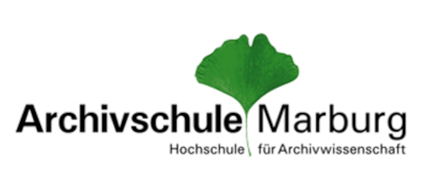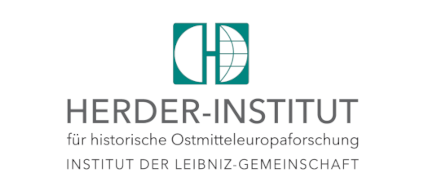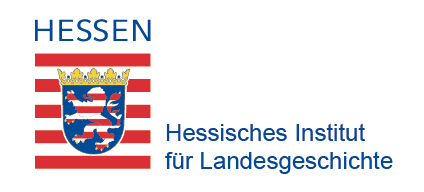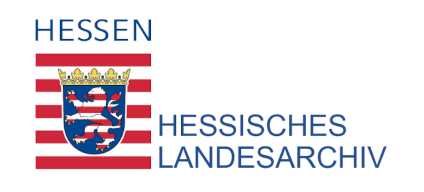31.01.2022 Conference Call for Papers: Rethinking Film and Cinema History through Global and Digital Approaches (early 20th century - 1970s)
Date: 5th-7th October 2022
Venue: IN3, UOC, Rambla del Poblenou, 156, 08018, Barcelona.
Organizers: the ERC Starting Grant project Social Networks of the Past: Mapping Hispanic and Lusophone Literary Modernity (1898-1959), the Global Literary Studies Research Lab and the Marburg Centre for Digital Culture and Infrastructure. Members of the organizing committee: Diana Roig-Sanz, Ainamar Clariana, Pablo Suárez-Mansilla and Malte Hagener. Communication manager: Cristina Sánchez.
The ERC Starting Grant project has received funding from the European Research Council (ERC) under the European Union’s Horizon 2020 research and innovation programme (grant agreement No 803860).
Global Literary Studies Research Lab (GlobaLS)
Marburg Center for Digital Culture and Infrastructure (MCDCI)
Call for Papers
Download the Conference Call for Papers [PDF].
Over the last few years, the study of cinema as a global phenomenon has kindled the interest of a growing number of researchers whose theoretical and methodological frameworks, as well as their objects of research, are diverse —including silent and contemporary cinema, diasporic cinemas, film cultures, coproduction, or networks of exchange among a wide range of agents taking part in the history of cinema. Despite the potential of applying global and digital approaches to film studies, these perspectives pose several challenges given the complexity of many terms (world, global, transnational, cosmopolitan) and the multiple layers that they involve (economic, political, aesthetic, among others). Likewise, there is a set of secondary literature that has been published from different research traditions (World Cinema, New Cinema History, etc.) and a variety of frameworks that overlap and make it sometimes difficult to disentangle them. In this respect, theoretical and methodological debates about how a global history of cultural processes should be written are increasing (Middell and Naumann 2010; Rotger, Roig-Sanz, and Puxán 2019). However, we still lack a shared theoretical framework to approach cinema history from a global and digital perspective, and the discussion on standards and infrastructures is also missing. Likewise, an interdisciplinary approach that may connect cinema history with other disciplines such as computer science, global literary history, or ecology and environmental humanities (Kääpä and Gustafsson 2013) seem to be also timely.
Certainly, the notion of the global, often used too vaguely, can give voice to multiple issues and actors that have been under-addressed (Hagener 2007; Clariana and Hagener 2022) or overshadowed by bigger names, generally, white European or US-American male filmmakers. This conference aims at pushing forward global and digital perspectives in film studies and, more specifically, in relation to how global and digital approaches can help rethinking film history. We aim at providing a gateway to discussing the concerns of a new generation of film historians who focus on global dynamics and challenge Eurocentric and Western discourses when applying the notion of the global, promoting plural globalities, heterogeneity, and the recognition of Latin American, Asian, and African historiographies, while using a gender-conscious, ethical, interdisciplinary, and digital approach. Of course, we foresee the possibility of multiple definitions of the global (both as a process and as an approach). Nonetheless, we understand global, decentralized, and decolonial film history as an epistemological premise and methodological research perspective. Thus, we seek to give voice to less-studied geographical scales, often considered as peripheral; neglected spaces of sociability such as film clubs and film criticism, and marginal and lesser-known actors, whom we understand as cultural mediators (Roig-Sanz and Meylaerts 2018). The conference introduces a gender perspective and aims at analysing cross-border film practices and overlooked movements and networks involving, though not exclusively, areas from the Global South and case studies on minoritized agents, such as women.
Within this framework, we encourage paper proposals that may focus on the following issues: 1) global perspectives in film studies and, more specifically, in relation to how global and digital approaches can help rethink film history and grapple with hegemonic discourses; 2) and case studies that may reflect on these issues through the analysis of less-studied geographical scales and less well-known cinematic projects and spaces of sociability, which shared the goal of reaching cinematographic internationalization and institutionalization, and a broad audience at different scales (local, regional, national, and international). The conference will specially promote the following areas of research:
- Theoretical and methodological insights when applying global and digital approaches to cinema history. Specifically, we encourage papers discussing what is the value of the global in this debate and how the management, cleaning, and interpretation of data on a large scale can contribute to uncovering hidden data from the archive, decentralizing mainstream history of cinema, and making visible forgotten agents such as women or cultural mediators from other geographical spaces outside Europe or the US. From a different angle, reflections on collaboration, digitization processes and data sharing between institutions which can help balance out inequalities between spaces in terms of representation and power are also welcome.
- Film clubs as cinematic projects and spaces of sociability where film cultures were shaped. Specifically, we aim at discovering what cultural transfers were transnationally deployed; what was the role of the various agents taking part in the building of film cultures in film clubs; what was the contribution of audiences and women specifically in the creation and development of film cultures, or how digital methods -using both little data and big data- can help promoting research on film clubs. In this respect, papers working within a relational, social network or Latourian perspective are also welcome.
- Film criticism as a social space of historical and cultural making. We encourage the submission of papers addressing cultural transfers in the circulation of ideas on cinema in national and international journals; the role specific agents played in the emergence and the course of film criticism and the transnational cinema field, and the social and political entanglements between national, world and global cinema through print culture, for example the periodicals, and film institutions. Finally, we encourage proposals on how digital heritage, methods and digital tools can contribute to current research on film criticism.
- Agents as cultural mediators. With the aim of rethinking cinema histories, including situated and partial knowledge (Haraway 1988), we welcome proposals that may contribute to highlighting women’s relevance in film history and redefine measuring tools to approach historical events from a gender perspective. Thus, we encourage case studies on historical transnational networks women succeeded to establish through cooperation, collaboration, and spaces of sharing and exchange such as film clubs or periodicals.
The time span of the conference goes from the early cinema in the 20th century to the early 1970s, as we understand the rise of the video as a turning point for film circulation in a global sense. In that respect, the conference promotes a longue durée approach that analyses film cultures in a historical continuum and considers parallel processes too.
Confirmed speakers
- Valeria Camporesi (Universidad Autónoma de Madrid)
- Rielle Navistki (University of Georgia)
- Julia Noordegraaf (University of Amsterdam)
- Masha Salazkina (Concordia University)
- Georgina Torello (Universidad de la República, Uruguay)
- Daniela Treveri Gennari (Oxford Brookes University)
- Michael Cowan (Iowa University)
Submissions
Authors should submit an abstract (300 words), filiation, bio-note and a short reference list to Ainamar Clariana (aclariana@uoc.edu), Pablo Suárez-Mansilla (psuarezmg@uoc.edu), Diana Roig Sanz (dsanzr@uoc.edu) and Malte Hagener (hagener@uni-marburg.de) before May 1st.
Language of the conference: the working language of this conference will be English. However, the organizers wish to express their awareness of cultural and linguistic diversity and will take also into consideration abstracts written in other languages when English might be a barrier. In a similar vein, the organizers are also committed to help in the discussion in case someone feels more comfortable to speak in other languages.
Fee: Participation in the Conference is free for students at Master and Doctoral level, but postdoctoral fellows and senior researchers will be charged 50€ to help with the organization costs. Speakers and assistants must register due to the limited number of seats. The organizers will send the link for registration after the acceptance of all papers.
Future publication: the organizers have planned the publication of a collective edited volume in a top-ranked publisher or a special issue in a well-known international journal. All papers will go through a double-blind peer review process.
Given the exceptional circumstances surrounding the Covid-19 pandemic, the organizers wish to express that we will follow the situation closely even though this conference is planned as a face-to-face conference.
Short Bibliography
Biltereyst, Daniel, Thunnis van Oort and Philippe Meers. ‘Comparing historical cinema cultures. Reflection on new cinema history and comparison with a cross-national case study on Antwerp and Rotterdam.’ In The Routledge Companion to New Cinema History, edited by Daniel Biltereyst, Thunnis van Oort and Philippe Meers. New York/London: Routledge, p. 96-112.
Clariana, Ainamar y Malte Hagener (forth. 2022). “Transnational Networks of the Avant-garde in the Interwar Period”. In Global Literary Studies: Key Concepts, edited by Diana Roig-Sanz and Neus Rotger. Berlin: De Gruyter.
Cowan, Michael. 2021. ‘What Was a Film Society? Towards a New Archaeology of Screen Communities’ In Histories of Film History, edited by Malte Hagener and Yvonne Zimmermann. Amsterdam: Amsterdam University Press (forthcoming)
Ďurovičová, Nataša, and Kathleen E. Newman. 2009. World Cinemas, Transnational Perspectives. World Cinemas, Transnational Perspectives. New York/London: Routledge.
Duval, Julien. 2016. Le cinéma au XXe siècle. Paris: CNRS
Duval, Julien « Une république mondiale du film », COnTEXTES [En ligne], 28 | 2020, mis en ligne le 29 septembre 2020, consulté le 30 novembre 2021. URL : http://journals.openedition.org/contextes/9222 ; DOI : https://doi.org/10.4000/contextes.9222
Ercole, Pierluigi, Lies Van de Vijver, and Daniela Treveri Gennari. 2020. “Challenges to Comparative Oral Histories of Cinema Audiences”. TMG Journal for Media History 23 (1-2): 1–19. DOI: http://doi.org/10.18146/tmg.586
Espagne, Michel. 2013. ‘La notion de transfert culturel’. Revue Sciences/Lettres, no. 1. https://doi.org/10.4000/rsl.219.
Gauthier, Christophe. 1999. La passion du cinéma cinéphiles, ciné-clubs et salles spécialisées à Paris de 1920 à 1929. Mémoires et documents de l’École des Chartes 56. Paris: Association Française de Recherche sur l’Histoire du Cinéma, École des Chartes.
Gunning, Tom. 2016. ‘Early Cinema as Global Cinema: The Encyclopedic Ambition’. In Early Cinema and the ‘National’, edited by Richard Abel, Giorgio Bertellini, and Rob King, 11–16. New Barnet: John Libbey Publishing Ltd.
Hagener, Malte. 2007. Moving Forward, Looking Back: The European Avant-Garde and the Invention of Film Culture, 1919-1939. Amsterdam: Amsterdam University Press.
Hagener, Malte. 2014. The Emergence of a Film Culture. Irish Film. New York/Oxford: Berghahn. https://doi.org/10.5040/9781838711061.ch-005.
Haraway, Donna. 1988. “Situated Knowledges: The Science Question in Feminism and the Privilege of Partial Perspective.” Feminist Studies 14 (3): 575-599.
Higbee, Will, and Song Hwee Lim. 2010. ‘Concepts of Transnational Cinema: Towards a Critical Transnationalism in Film Studies’. Transnational Cinemas 1 (1): 7–22. https://doi.org/10.1386/trac.1.1.7/1.
Kääpä, Pietari and Tommy Gustafsson. 2013. Transnational Ecocinema. Film Culture in an Era of Ecological Transformation. Bristol: Intellect.
La Garza, Armida De, Ruth Doughty, and Deborah Shaw. 2019. ‘From Transnational Cinemas to Transnational Screens’. Transnational Screens 10 (1): (i)-(vi). https://doi.org/10.1080/25785273.2019.1660067.
Lusnich, Ana Laura, Alicia Aisemberg, Andrea Cuarterolo, and Alicia Aisemberg. 2017. Pantallas transnacionales: el cine argentino y mexicano del período clásico. Ciudad de México/Buenos Aires: Cineteca Nacional México/Imago Mundi.
Maltby, Richard, Daniel Biltereyst, and Philippe Meers. 2011. Explorations in New Cinema History: Approaches and Case Studies. Explorations in New Cinema History: Approaches and Case Studies. Oxford: Wiley-Blackwell.
Middell, Matthias, and Katja Naumann. 2010. “Global history and the spatial turn: from the impact of area studies to the study of critical junctures of globalization.” Journal of Global History 5 (1): 149–170.
Navitski, Rielle, and Nicolas Poppe. 2017. Cosmopolitan Film Cultures in Latin America, 1898-1960. Bloomington: Indiana University Press.
Noordegraaf, Julia, Kathleen Lotze and and Jaap Boter. 2018. “Writing Cinema Histories with Digital Databases: The Case of Cinema Context.” TMG Journal for Media History 21 (2): 106–126.
Roig-Sanz, Diana and Reine Meylaerts. 2018. Literary translation and cultural mediators in “peripheral” cultures: Customs officers or smugglers? New comparisons in world literature. Switzerland: Palgrave Macmillan.
Rotger, Neus, Diana Roig-Sanz and Marta Puxan-Oliva. 2019. “Introduction: Towards a cross-disciplinary history of the global in the humanities and the social sciences.” Journal of Global History 14 (3): 325–334.
Salazkina, Masha. 2020. “World Cinema as Method”. Canadian Journal of Film Studies 29 (2): 10-24.
Stam, Robert. 2019. World literature, transnational cinema and global media. Towards a transartistic commons. London/New York: Routledge.
Van Oort, Thunnis, Åsa Jernudd, Kathleen Lotze, Clara Pafort-Overduin, Daniël Biltereyst, Jaap Boter, Silvia Dibeltulo, Pier Ercole, Philippe Meers, Terezia Porubcanska, Daniela Treveri Gennari, and Liesbeth Van de Vijver. 2020. "Mapping Film Programming across Post-War Europe (1952)." Research Data Journal for the Humanities and Social Sciences 5 (2): 109-125. https://doi.org/10.1163/24523666-00502009.
Werner, Michael, and Bénédicte Zimmermann. 2003. ‘Penser l’histoire croisée: entre empirie et réflexivité’. Annales. Histoire, Sciences Sociales 58e année (1): 7–36.
Kontakt
Diana Roig-Sanz, Ainamar Clariana, Pablo Suárez-Mansilla, and Malte Hagener



